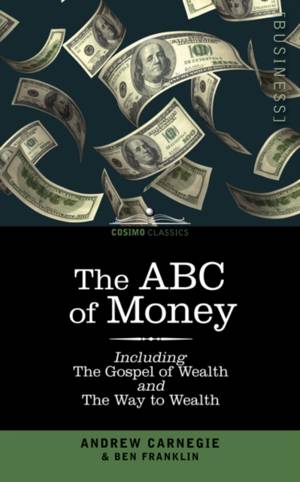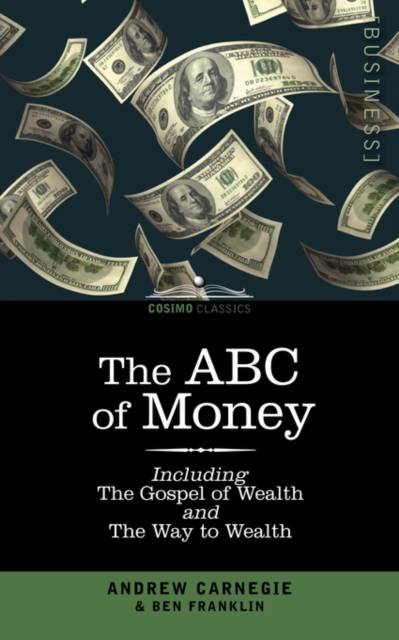
Bedankt voor het vertrouwen het afgelopen jaar! Om jou te bedanken bieden we GRATIS verzending (in België) aan op alles gedurende de hele maand januari.
- Afhalen na 1 uur in een winkel met voorraad
- In januari gratis thuislevering in België
- Ruim aanbod met 7 miljoen producten
Bedankt voor het vertrouwen het afgelopen jaar! Om jou te bedanken bieden we GRATIS verzending (in België) aan op alles gedurende de hele maand januari.
- Afhalen na 1 uur in een winkel met voorraad
- In januari gratis thuislevering in België
- Ruim aanbod met 7 miljoen producten
Zoeken
The ABC of Money
Including, the Gospel of Wealth and the Way to Wealth
Benjamin Franklin, Andrew Carnegie
Paperback | Engels
€ 18,95
+ 37 punten
Omschrijving
From the days of farmer's bartering for bushels of corn to establishing the concept of credit, this practical guide gets at the root of the subject of money: why it exists and, more importantly, what money really is. THE ABC OF MONEY is an undiscovered gem offering a wealth of knowledge and Carnegie's shrewd philosophies on the subject - a fascinating look at the history of "debased coin" and "greenbacks," and the value of currency from one of the great American industrialists. ANDREW CARNEGIE (1835-1919) was an American industrialist and philanthropist. His previous works include "The Gospel of Wealth" (1889) setting forth his idea that rich men are "trustees" of their wealth and should administer it for the good of the public. Carnegie's benefactions (totaling about $350 million) included Carnegie Hall (1892) in New York City, the Carnegie Institution of Washington (1902), the Carnegie Hero Fund Commission (1904), the Carnegie Foundation for the Advancement of Teaching (1905), the Carnegie Endowment for International Peace (1910), and over 2,800 libraries. BENJAMIN FRANKLIN (1706-1790) composed "The Way to Wealth" composed this essay for the twenty-fifth anniversary issue of Poor Richard's Almanac, the first issue of which, under the fictitious editorship of "Richard Saunders," appeared in 1733. Franklin brought together the best of his maxims in the guise of a speech by Father Abraham. Though it is frequently reprinted as "The Way to Wealth," it is also know by earlier titles: Poor Richard Improved and Father Abraham's Speech.
Specificaties
Betrokkenen
- Auteur(s):
- Uitgeverij:
Inhoud
- Aantal bladzijden:
- 68
- Taal:
- Engels
Eigenschappen
- Productcode (EAN):
- 9781596050235
- Verschijningsdatum:
- 1/07/2008
- Uitvoering:
- Paperback
- Formaat:
- Trade paperback (VS)
- Afmetingen:
- 127 mm x 203 mm
- Gewicht:
- 81 g

Alleen bij Standaard Boekhandel
+ 37 punten op je klantenkaart van Standaard Boekhandel
Beoordelingen
We publiceren alleen reviews die voldoen aan de voorwaarden voor reviews. Bekijk onze voorwaarden voor reviews.









